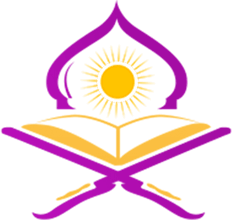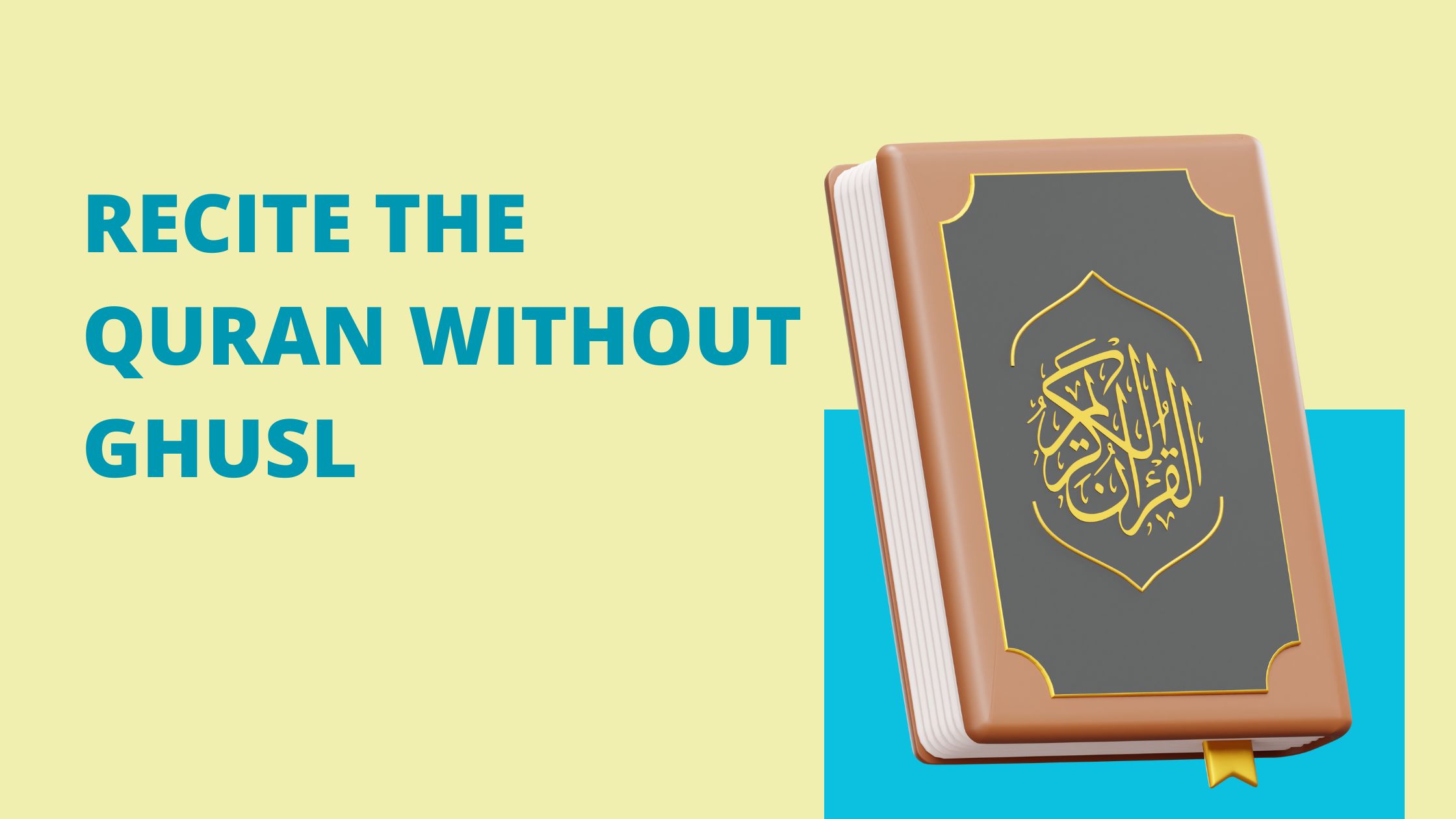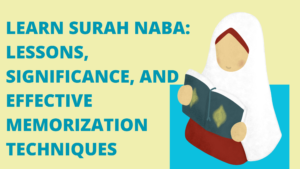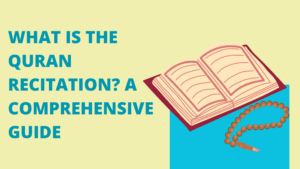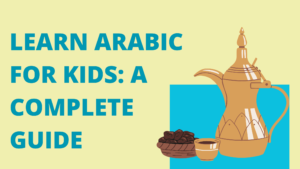Purity is a fundamental concept in Islam, encompassing both spiritual and physical cleanliness. Before engaging in acts of worship, Muslims must attain a state of overall purity, known as Taharah. Whether reciting the Quran, performing salah (prayer), or fulfilling any religious duty, maintaining purity is essential.
In this article we will investigate whether performing ghusl is obligatory for reciting and touching the Quran, drawing upon insights from the Quran and Sunnah to offer clarity on this matter.
In a nutshell: Ghusl, a ritual of purification, is necessary before touching or reciting the Quran in a state of major impurity called janabah. However, one can silently recite the Quran in their heart without ghusl. While washing before Quranic engagement is encouraged, it’s not obligatory unless physical contact is intended. In the absence of water, tayammum, a ritual using clean earth, serves as an alternative. Yet, the Quran’s words remain accessible to all listeners, irrespective of their state of purity.
Table of Contents
Can You Recite And Read The Quran Without Ghusl?
Yes, you can recite and read the Quran without performing ghusl, However, if you are in a state of janabah (major impurity), you need to perform ghusl before you can recite or touch the Quran.
Can You Recite Quran In State Of Janabah?
No, you can not recite the Quran in the state of Janabah. People in a state of Janabah are not allowed to recite the Quran until they have purified themselves through performing Ghusl.
Ali may Allah be blessed with him narrated: “Allah’s Messenger would recite the Qur’an in all conditions, as long as he was not Junub.”. However, It’s allowed for someone in a state of Janabah to silently recite the Quran in their heart. They can also move their lips and whisper without hearing their own voice, and there’s no issue with that.
Do you have to wash before reading the Quran?
No, you don’t have to wash before reading the Quran, Performing ablution before reading the Quran is not obligatory unless one intends to touch it directly. However, it is encouraged to perform wudu before engaging with the Quran, even if reading it digitally, as a gesture of honor and reverence for the word of Allah.
If a person is in a minor state of impurity and plans to handle the Quran, performing wudu is required. This is because the Quran is deemed sacred and should be approached with cleanliness and respect.
However, if one does not intend to touch the Quran and only wishes to recite it, wudu is not mandatory. Reciting the Quran without physical contact, such as reading from a screen or reciting from memory, is permissible.
What does the Quran say about ghusl?
Allah subhanahu wa ta’ala says in sūrat l-nisāa: (O you who have attained faith, do not approach prayer while you are drunk so that you may know what you say, nor while you are in a state of major impurity—unless you are traveling—until you have bathed. And if you are sick or traveling or one of you returns from relieving oneself or you have touched women(in intercourse) and cannot find water, then find clean soil and wipe your faces and your hands with it. Indeed, Allah has always been Pardoning, Oft-Forgiving.)
What is the alternative to ghusl?
When circumstances prevent the performance of Ghusl, such as non-availability of water or inability to use it due to sickness, Tayammum is the alternative. In such cases, people in the state of Janabah should resort to Tayammum for purification. Once they have performed Tayammum and completed their prayers, they are obligated to perform Ghusl when water becomes available.
Evidence from Quran
Allah subhanahu wa ta’ala says in surah al-Maa’idah: (O you who have attained faith, when you rise for prayer, wash your faces and your hands up to the elbows, and wipe your heads and (wash) your feet to the ankles. But if you are in a state of major impurity, then cleanse yourselves. But if you are ill or traveling or one of you returns from relieving himself or you have touched women(in intercourse) and cannot find water, then seek clean soil and wipe over your faces and hands with it. Allah does not want to cause you discomfort; rather He wants to cleanse you and to complete His blessing upon you, that you may give thanks).
Evidence from Hadith
Narrated `Imran bin Husain Al-Khuza`i: Allah’s Messenger ﷺ saw a person sitting aloof and not praying with the people. He asked him, “O so and so! What prevented you from praying with the people?” He replied, “O Allah’s Messenger I am Junub and there is no water”. The Prophet said: “Perform Tayammum with clean earth and that will be sufficient for you”. (Sahih al-Bukhari)
Evidence from noble scholars
Shaykh al-Islam Ibn Taymiyah said: “Anyone who becomes junub, whether due to a wet dream or intercourse is required to perform Ghusl and pray. However, if performing Ghusl is not feasible due to reasons such as the unavailability of water or the risk of exacerbating illness, then Tayammum should be performed instead. This applies to both men and women. It’s important to note that delaying prayer beyond its prescribed time is not permissible in such circumstances.”
Tayammum acts as a replacement for water when it’s unavailable or cannot be used due to illness. However, When water is found, Ghusl becomes necessary to cleanse oneself from previous states of Janabah. Likewise, if a sick person recovers, they must perform Ghusl to purify themselves from the previous state of Janabah purified by Tayammum. Past prayers performed after Tayammum remain valid until water becomes available or the individual recovers from illness, regardless of the duration.
If you don’t do ghusl, will your prayer be valid?
No, it is not permissible to offer prayer without performing ghusl if one is in a state of janabah. Ghusl is essential for purification from major impurity. If someone cannot find water, they may perform tayammum using clean soil as an alternative method of purification as we mentioned earlier.
Can ghusl be done without washing hair?
It is obligatory to wash the hair during Ghusl after having sexual intercourse.
and the evidence for this comes from a Hadith narrated by Maimunah bint Al-Harith, the wife of the Prophet said: “When the Messenger of Allah performed Ghusl from Janabah, he would start by washing his hands, then he would pour water with his right hand onto his left and wash his private part, then he would strike his hand on the ground then wipe it then wash it. Then he would perform Wudu’ as for prayer, then he would pour water on his head and all of his body. Then he would move and wash his feet.” Sunan an-Nasa’i
However, If you’re concerned about health issues related to washing your hair, you have the option to perform Ghusl without washing your hair and instead perform Tayammum.
Can You Listen to the Quran in the State of Janabah?
Yes, You Listen to the Quran in the State of Janabah, as there is no evidence or report indicating such a restriction.
Learn the Quran Online With Bayan al-Quran Native Arab Tutors:
Embark on a transformative journey of Quranic learning with Bayan Al-Quran’s comprehensive online courses. Our platform offers an authentic and immersive experience tailored to learners worldwide. Whether you’re a beginner or seeking to enhance your skills, our Tajweed courses provide expert guidance and structured learning to master the art of Quranic recitation.
Expert Guidance:
Benefit from experienced instructors who specialize in Tajweed, breaking down complex rules into manageable segments for learners of all levels.
Key Features:
- Structured, step-by-step learning approach.
- Access to high-quality instructional materials.
- Real-time feedback from qualified tutors to enhance your practice.
- Flexible learning schedules to accommodate your pace and convenience.
- Immerse yourself in the melodious tones of Quranic recitation, enriching your spiritual experience.
Why Choose Bayan Al-Quran?
Join our vibrant community dedicated to perfecting Quranic recitation. Build a profound connection with the divine words of the Quran and enrich your spiritual journey. Choose Bayan Al-Quran for a transformative learning experience and embark on a path to mastering Tajweed with confidence.
You can also attend online Quran and Arabic Classes with Bayan al-Quran with Native Arab tutors. There are also several courses that can help you in this regard:
- Learn Quran Online With Tajweed For Kids And Adults
- Learn Arabic Online Course
- Islamic Studies Online Course
- Noorani Qaida Online Course For Kids And Adults
Conclusion:
performing ghusl is essential for purifying oneself from major impurity, such as janabah, before offering prayers. It is obligatory to wash the hair during ghusl, if there are health concerns related to washing the hair, one can perform ghusl without washing it and instead perform tayammum. Despite being in a state of janabah, there is no prohibition on listening to the Quran.
